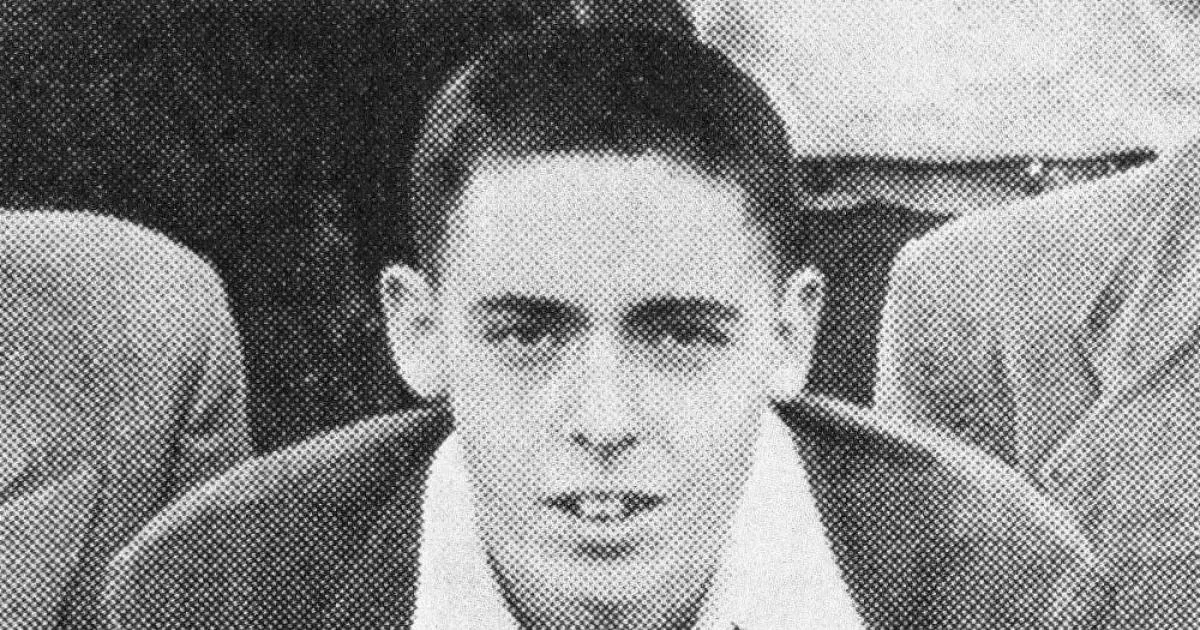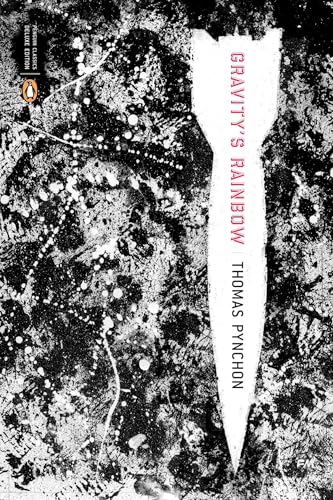How Thomas Pynchon built a successful career. Explore key moments that defined the journey.
Thomas Pynchon is a reclusive American novelist renowned for his complex postmodern fiction. His works are characterized by dense allusions to a wide range of subjects including history, science, literature and popular culture, and are often laced with humor and explorations of paranoia. Regarded as one of America's greatest novelists, Pynchon maintains a highly private life, contributing to his mystique and the circulation of rumors about his identity and whereabouts.
1932: Setting of Shadow Ticket
Pynchon's novel Shadow Ticket, due in October 2025, is set in 1932.
1958: Co-creation of Minstrel Island
In 1958, Pynchon and Kirkpatrick Sale co-wrote part or all of a science-fiction musical, 'Minstrel Island', which portrays a dystopian future in which IBM rules the world.
March 1959: Publication of "The Small Rain"
In March 1959, Pynchon's first published story, "The Small Rain", appeared in the Cornell Writer.
1960: Publication of "Low-lands" and "Entropy"
In 1960, two of Pynchon's earliest short stories were published: "Low-lands", featuring a meditation on Heisenberg's uncertainty principle, and "Entropy", which introduced the concept that would become synonymous with Pynchon's name.
1961: Publication of "Under the Rose"
In 1961, Thomas Pynchon published "Under the Rose", an early short story featuring a cyborg set in Victorian-era Egypt, foreshadowing steampunk themes.
1963: Publication of V.
In 1963, Thomas Pynchon published his novel V., marking a significant milestone in his career.
1963: Start date for letters to Candida Donadio
In 1963, Thomas Pynchon started writing letters to his literary agent, Candida Donadio. These letters were later donated to the Pierpont Morgan Library.
1964: Publication of "The Secret Integration"
In 1964, Pynchon's last published short story, "The Secret Integration", explored racial integration through the experiences of young boys.
December 1965: Contribution to Holiday Magazine
In December 1965, Pynchon contributed an appreciation of Oakley Hall's 'Warlock' to a feature called "A Gift of Books" in Holiday magazine.
December 1965: Rejection of Bennington College Teaching Invitation
In December 1965, Pynchon declined an invitation to teach literature at Bennington College, stating he was working on three novels simultaneously.
1965: Writing a "potboiler"
In 1965, Pynchon wrote a letter to Donadio, saying he was in the middle of writing a "potboiler", which later grew to be 'The Crying of Lot 49'.
June 1966: Publication of "A Journey Into the Mind of Watts"
In June 1966, Pynchon wrote "A Journey Into the Mind of Watts", a firsthand report on the aftermath of the Watts Riots in Los Angeles published in The New York Times Magazine.
1966: Publication of The Crying of Lot 49
In 1966, Pynchon's second novel, 'The Crying of Lot 49', was published.
1973: Publication of Gravity's Rainbow
In 1973, Pynchon published 'Gravity's Rainbow', a complex and allusive novel that combined many of the themes of his earlier work.
1982: End date for letters to Candida Donadio
In 1982, Thomas Pynchon ended a period of writing letters to his literary agent, Candida Donadio. These letters were later donated to the Pierpont Morgan Library.
1984: Introduction for Slow Learner
Around 1984, Thomas Pynchon wrote an introduction for his short story collection Slow Learner, sharing autobiographical comments and recollections.
1984: Publication of Slow Learner and Article in The New York Times Book Review
In 1984, Pynchon's collection of early short stories, Slow Learner, was published, featuring a lengthy autobiographical introduction. Also in October 1984, the article "Is It O.K. to Be a Luddite?" appeared in The New York Times Book Review.
1987: Gravity's Rainbow named "Old Testament" of Cyberpunk
In 1987, Timothy Leary's essay in Spin magazine named Gravity's Rainbow as the "Old Testament" of cyberpunk, marking Pynchon's influence on the genre.
April 1988: Pynchon Reviews Love in the Time of Cholera
In April 1988, Thomas Pynchon reviewed Gabriel García Márquez's Love in the Time of Cholera in The New York Times, praising it as "a shining and heartbreaking book."
1989: Pynchon signs letter of solidarity for Salman Rushdie
In 1989, Thomas Pynchon was among authors who signed a letter of solidarity with Salman Rushdie after Rushdie received death threats for his novel The Satanic Verses. Pynchon expressed his hope for tolerance and respect for life.
1990: Publication of Vineland
In 1990, Thomas Pynchon published his novel 'Vineland', adding another significant work to his bibliography.
June 1993: Publication of "Nearer, My Couch, to Thee"
In June 1993, Pynchon's article "Nearer, My Couch, to Thee", was published in The New York Times Book Review as part of a series on the Seven Deadly Sins, with Pynchon focusing on "Sloth".
1994: Involvement with The John Larroquette Show
In 1994, Thomas Pynchon contacted the producers of NBC's "The John Larroquette Show" to offer suggestions. He provided the title of a fictitious work, "Pandemonium of the Sun", and vetoed a scene involving an extra playing him. He also requested that the character be seen wearing a Roky Erickson T-shirt.
1994: Pynchon pens liner notes for Spiked!
In 1994, Thomas Pynchon penned a 3,000-word set of liner notes for the album Spiked!, a collection of Spike Jones's recordings.
1995: Liner notes for Lotion's album
In 1995, Thomas Pynchon befriended members of the band Lotion and wrote liner notes for their album, Nobody's Cool. Initially, the band claimed that Pynchon saw them in concert and became a groupie, but later stated that he met them through his accountant.
June 1996: Interview with Lotion for Esquire
In June 1996, Thomas Pynchon conducted an interview with the band Lotion titled "Lunch with Lotion" for Esquire in anticipation of the release of Mason & Dixon.
1997: Publication of Mason & Dixon
In 1997, Thomas Pynchon released his novel 'Mason & Dixon', showcasing his continued literary output.
2001: Contribution to 'Positively 4th Street'
In 2001, Thomas Pynchon provided faxed answers to questions submitted by author David Hajdu and allowed excerpts from his personal correspondence to be quoted in Hajdu's book, Positively 4th Street: The Lives and Times of Joan Baez, Bob Dylan, Mimi Baez Fariña and Richard Fariña.

July 2006: Amazon page for upcoming novel
In July 2006, Amazon created a page showing an upcoming 992-page, untitled novel by Thomas Pynchon, with a description purporting to be written by Pynchon himself. The description was later restored along with the novel's title, Against the Day.
November 21, 2006: Release of Against the Day
On November 21, 2006, Against the Day was released. The book contains 1,085 pages in the first edition hardcover.
December 6, 2006: Letter supporting Ian McEwan
On December 6, 2006, Thomas Pynchon joined a campaign with other authors to clear Ian McEwan of plagiarism charges by sending a typewritten letter to McEwan's British publisher, which was published in the Daily Telegraph newspaper.
2006: Publication of Against the Day
In 2006, Thomas Pynchon's novel, 'Against the Day' was published.
August 4, 2009: Promotional Video Release
On August 4, 2009, Penguin Books released a promotional video for Pynchon's novel Inherent Vice, with the character voiceover narrated by Pynchon.
August 2009: Publication of Inherent Vice
In August 2009, Inherent Vice was published.
2009: YouTube promotional teaser for Inherent Vice
In 2009, Thomas Pynchon's YouTube promotional teaser for his novel Inherent Vice marked the second time a recording of his voice was released to mainstream outlets, after his appearances on The Simpsons.
2009: Publication of Inherent Vice
In 2009, Thomas Pynchon's novel, 'Inherent Vice' was published.
2012: Release of novels in e-book format
In 2012, Thomas Pynchon's novels were released in e-book format, after a long holdout. Penguin Press reported that the novels' length and complex page layouts made the digital conversion challenging.
2013: Publication of Bleeding Edge
In 2013, Thomas Pynchon's novel 'Bleeding Edge' was published.
April 2025: Shadow Ticket Novel Announcement
In April 2025, Penguin Press announced a new novel by Pynchon, Shadow Ticket, with a synopsis.
October 2025: Shadow Ticket Publication
In October 2025, Shadow Ticket, a new novel by Pynchon, is due for publication.
2025: Publication of Shadow Ticket
In 2025, Thomas Pynchon's novel 'Shadow Ticket' was published.
Mentioned in this timeline

Bob Dylan is a highly influential American singer-songwriter renowned as...
California is a U S state on the Pacific Coast...
CNN Cable News Network is an American multinational news media...
The National Broadcasting Company NBC is a major American commercial...

The Boeing Company is a multinational corporation and one of...

Los Angeles is the most populous city in California and...
Trending

42 minutes ago Warriors face play-in, Curry's injury raises concerns, Kerr lowers expectations, Moody's role?

42 minutes ago Stephen A. Smith criticizes Draymond Green's comments on Nico Harrison as unfair.

42 minutes ago Kris Dunn Recovered From Injury, Briefly Exited Game After Elbow Contact

43 minutes ago Al Horford's Role Shifts: Back to Starting Lineup, Then Bench, Mindset Revealed.

2 hours ago Jafar Panahi faces restrictions, continues filmmaking despite adversity and imprisonment in Iran.

2 hours ago Joe Rogan Interviews RFK Jr. on Trump's ICE Raids and US Taxpayer Losses.
Popular

Jesse Jackson is an American civil rights activist politician and...

Hillary Diane Rodham Clinton is a prominent American politician lawyer...

Jim Carrey is a Canadian-American actor and comedian celebrated for...

XXXTentacion born Jahseh Dwayne Ricardo Onfroy was a controversial yet...

Michael Joseph Jackson the King of Pop was a highly...

Kashyap Pramod Patel is an American lawyer who became the...












